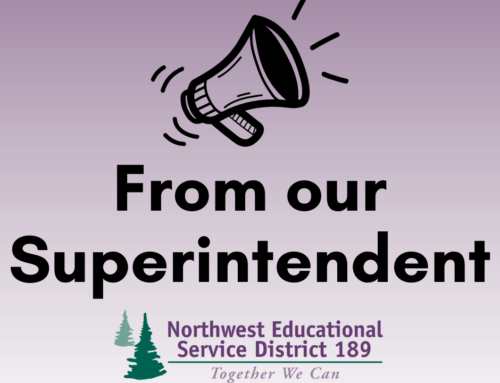
During a recent visit to the Northwest Educational Service District 189 (NWESD), I was invited to attend a professional book study sponsored by the School Nurse Corps (SNC) program. They were discussing the book Brave Girl Eating by Harriet Brown. This is a true, inspirational story of one family’s battle with the life-threatening challenges of anorexia. Before I knew it, I found myself engaged in a dialogue about the medical and educational impacts of anorexia and shared experiences across school districts. I didn’t realize it at the time, but this was an intentional, alternative to traditional continuing education.
Through this experience, I learned that school nurses in the NWESD’s SNC program have high needs for continuing education and professional development as they often practice in rural, isolated school communities. Release time from professional duties, part-time hours, long-distance travel, and lack of funding support contribute to the challenge of attending continuing education opportunities. Fortunately, for these nurses, part of the SNC program support includes five, in-person professional development trainingsduring each school year that incorporate two book studies.
I observed that through reading and discussion, SNC nurses become aware of challenging trends and practices that impact the delivery of school nursing and health services. Challenges that through collegial relationships and mutual support can be overcome. Strategies that build nursing competency, increase knowledge and lifelong learning are supported within this framework of learning. According to Deborah Greenawald, assistant professor of Nursing at Alvernia College, Pennsylvania, “The search for meaning in a book whether fiction or non-fiction can be an educational journey that benefits school nurses at any point in their careers”.
Since 2008, NWESD SNC nurses have read 20 books on a variety of topics including childhood cancer, drug abuse, autism, physical disabilities, culture and medicine, mental health, homelessness, immunizations, and health-care ethics. A variety of learning strategies are used. School nurses participate in large and small group discussion, group reflection, and interaction. They listen to radio podcasts and discuss relevant case studies. The nurses also share nursing care plans, forms, practice standards, and policy. Guest speakers sometimes join the book study to augment content and provide expertise. No matter what the content, discussion includes relevance to their professional practice to benefit students, school, and community.
I am learning that research supports the value of book studies not just for school nurses, but other professionals as well. Some of our districts have used Dr. Ruby Payne’s Framework for Understanding Poverty, to better understand the "hidden rules of economic class" and their effect on learning. Maybe your district has read Steven R. Coveys’ The 7 Habits of Highly Effective People or Who Moved My Cheese by Spencer Johnson, MD to manage personal and professional change?
Whether a book study encourages school-wide community discussionor dialogue with a cohort of peers, they have become a respected, alternative venue for continuing education. They can provide meaningful, relevant, and enjoyable learning through reflection and discussion with colleagues. A type of learning that can improve critical thinking, foster community and promote adult learning.
In the words of Charles W. Eliot, Harvard University president, 1869, “Books are the quietest and most constant of friends; they are the most accessible and wisest of counselors, and the most patient of teachers”.
Happy learning,
Ed


